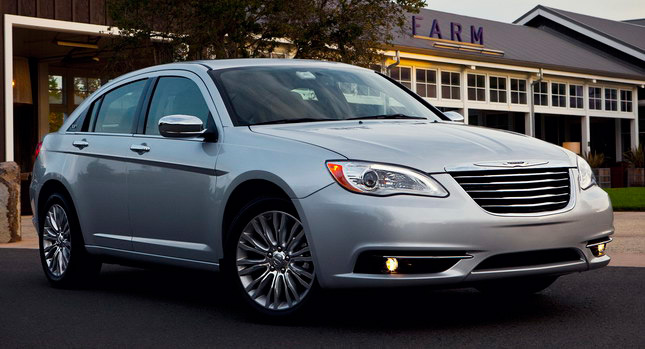Fancy a brand-new 2013 Ford Taurus for US$5,000 less than list price? How about four grand off a 2012 Chrysler 200? As the year inexorably comes to its close, U.S. dealerships and, in some cases, manufacturers themselves, are offering price incentives in order to clear up stock.
According to a report from The Detroit News, last week a man in front of Matthews-Hargreaves Chevrolet in Royal Oak, Michigan waved a sign reading, “rebates up to $8,000”.
So, are Detroit carmakers engaging in a price war like in the days of yore that, eventually, led to ruining their business?
Industry experts believe that this is not the case. “An all-out war is really not what we’re going to see”, TrueCar analyst Jesse Torpak told the Detroit daily. “It’s probably going to be isolated for certain categories of vehicles. This month, for example, we’re seeing heightened battle for the truck segment.”
The reason is that there are huge inventories of trucks sitting outside their factories. At the end of November, according to Ward’s Automotive, General Motors had a 103-day supply of trucks. The inventory for its GMC Sierra was 146 days, so the company is offering incentives of US$9,000 on some 2012 model year trucks.
“We went harder this month because we missed on November”, said GM president Mark Reuss, noting that last month some competitors were discounting their own trucks by nearly US$2,700 more than GM.
J.D. Power’s actual transaction data show that the average incentive in November was nearly US$400 less than the same month in 2011. Chrysler’s incentives were up by an average of almost US$300, though, the carmaker’s sales chief Reid Bigland said that this is standard company strategy.
“Our game is a disciplined, methodical game”, commented Bigland. “We’ve vowed to stay competitive in the marketplace from the price perspective but at the same time we’re keeping a very keen eye on what flows through to our bottom line.”
Ford’s average incentive last month was down US$300, which the Blue Oval’s sales analyst Erich Merkle attributed to its managing to match production and demand for both cars and trucks. “If you look at our inventory position, it’s right where it should be – not too high, not too low”, he said.
Ford had a 76-day supply of trucks by the end of November and Merkle pointed out that the F-Series is set to become the best-selling truck in the U.S. for the 36th year quite in a row without the company resorting to huge incentives.
By the same token, it has a 64-day car inventory, which is just one day more than Toyota. The Japanese carmaker has long been considered as one of the most “disciplined” manufacturers, but last month, its average incentive was up by more than US$500.
That’s partly because last year its inventory was pretty low, due to the earthquake and tsunami in Japan and partly because, as Torpak explained, competition has become too fierce.
“In those segments, Toyota took sales domination for granted for many years”, he said. “They can’t anymore. There are too many worthy competitors. Those segments are the most competitive that we’ve ever seen.”
By Andrew Tsaousis
PHOTO GALLERY




